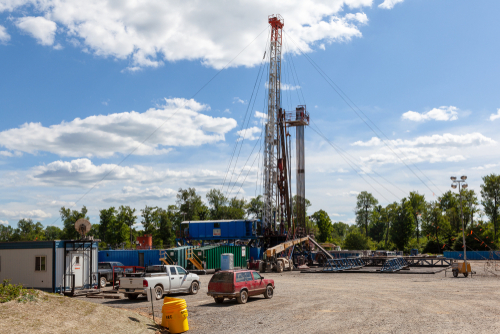
A just-released report from the Pennsylvania Department of Environmental Protection (DEP) shows that gas drillers in the state saw a decrease in 2022 production for the first time since fracking got under way in the commonwealth more than a decade ago.
In 2022, total natural gas production in Pennsylvania was approximately 7.5 trillion cubic feet (TCF), compared to roughly 7.6 TCF in 2021, according to the DEP’s 2022 Oil and Gas Annual Report.
“This represents the first decrease in year-over-year natural gas production volumes since unconventional operations commenced in Pennsylvania,” the report states.
Gas drilling companies in Pennsylvania — which remains the nation’s second-largest natural gas producer behind Texas — drilled more wells in 2022 than they did in 2021: 790 compared to 648, respectively, according to the report.
At the same time, during 2022 there were a record number of inspections made by DEP staff, which out of 39,648 inspections found just more than 8,000 compliance violations, or approximately 600 fewer than the previous year, according to the report.
Specifically, DEP inspectors found 5,149 health and safety violations across conventional and unconventional sites.
Conventional drillers, which are smaller companies, were responsible for about two-thirds of the violations, the report says, while unconventional drillers were responsible for 1,273 health and safety violations for issues including improper well construction, gas and drilling fluid leaks, and the mismanagement of waste.
The DEP also says that in the last five fiscal years, it has collected the lowest amount in fines and penalties totaling $1.7 million.
The report also shows that Pennsylvania oil production totaled 986,089 barrels during 2022.
In looking ahead, the DEP said in its report that it wants to establish a long-term, stable source of funding.
Currently, permit application fees serve as the primary source of funding to pay for the operation of DEP’s Oil and Gas Program. Over the past several years, says DEP, the number of permits submitted to the department has not resulted in enough permit fees to support the annual costs of administering its Oil and Gas Program.
“Since DEP cannot predict the number of permit applications that will be received in future years, this fee structure is unpredictable and is not a viable mechanism to fund the Oil and Gas Program,” says DEP in its report. “In 2023, DEP will work to develop an alternate approach to funding the DEP Oil and Gas Program that is more predictable and sustainable.”